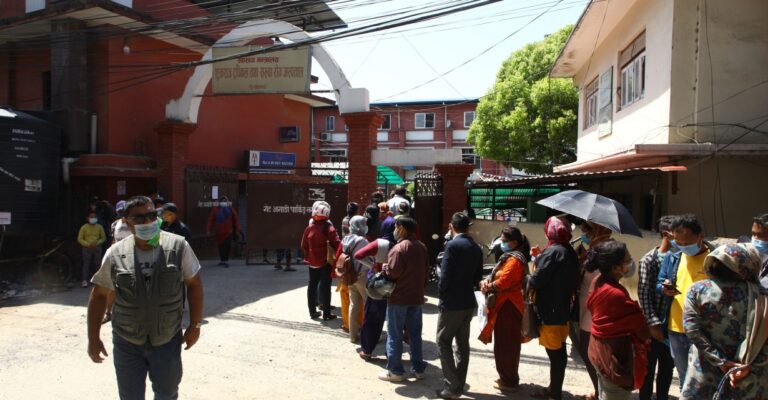
As the second wave of the coronavirus pandemic has already started in the country, Nepal government has decided to impose a 15-day lockdown at coronavirus hotspot districts, including in the Kathmandu valley.
Earlier, the District Administration Offices in Kathmandu Valley; Kathmandu, Lalitpur and Bhaktapur, had announced a seven-day ban but the meeting of Council of Ministers decided that 15 days period is minimum to curb the spread, as that is the recommended time for isolation.
Densely populated areas and border areas of Banke, Bardiya, Baglung and Kalikot districts have already imposed prohibitory orders. Similarly, a week-long prohibitory order is issued in Surkhet from Tuesday midnight and in Kaski from 6:00 am on Wednesday.
The meeting of COVID-19 Crisis Management Center (CCMC) on Sunday had submitted a proposal to the Council of Ministers to impose lockdown in hilly districts exceeding 200 active coronavirus cases and in city areas exceeding 500 active cases.
Meanwhile, discussions are underway to impose prohibitory orders in Kailali and Kanchanpur districts to curb the spread of the virus.
The Ministry of Home Affairs has directed to implement the response plan as per the need in the districts bordering India and at high-risk cities.
While some districts have imposed complete lockdown, some have resorted to issuing prohibitory orders only.
For example, the Kathmandu Valley have completely banned public and private vehicles while Kaski district has implemented odd-even rule on both public and private vehicles.
Article 6 (3) of the Local Administration Act, 1971 states that the Chief District Officer may issue a prohibitory order for a certain period of time to control any activity affecting peace, security or public health in their area.
Those who violate the order can be sentenced to one month imprisonment or a fine of Rs 500 or both.
Similarly, Article 2 of the Infectious Diseases Act 2020 states that the Government of Nepal may take necessary action to eradicate or prevent the spread of any contagious disease among human beings. Violation of such order is punishable by one month imprisonment or a fine of Rs 100 or both.






